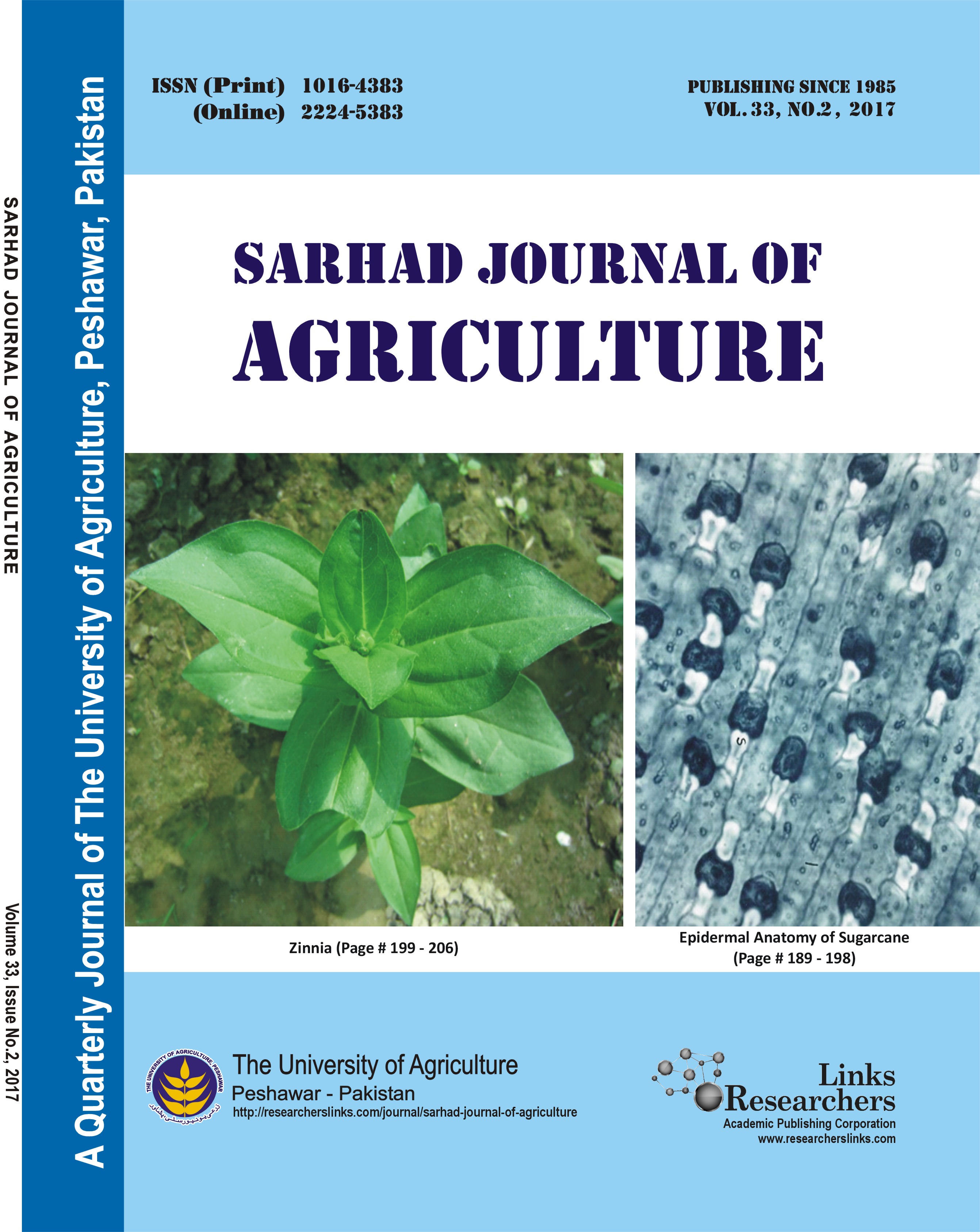Effect of Exposure to Pasteurella multocida B:2 and its Immunogens on Clinical, Hematological and Serum Biochemical Parameters in Neeli Ravi Buffaloes
Effect of Exposure to Pasteurella multocida B:2 and its Immunogens on Clinical, Hematological and Serum Biochemical Parameters in Neeli Ravi Buffaloes
Ali Zaman1, Nabila Roohi1 and Muhammad Irfan2*
ABSTRACT
Buffaloes and other bovines suffer from a fatal disease, “Hemorrhagic septicemia” (HS), which is produced by a gram-negative bacterium “Pasteurella multocida.” Existing literature has established bacteria’s pathogenesis, but still, the literature about the role of bacteria and its immunogens on the demonstration of clinical signs, hematology and serum biochemistry in Nili Ravi buffaloes under subtropics is lacking. This study was designed to fulfill this gap by analyzing the effects of exposure to the bacterial culture of Pasturella multocida (P. multocida) type B:2 and its immunogens, i.e., lipopolysaccharide (LPS) and outer membrane protein (OMP) on Nili Ravi buffaloes. Prepubertal Nili Ravi female buffaloes (N=18) of 10-12 months age in good health condition were divided into five treatment groups (n=3 each) and a control group (n=3). Treatment groups’ animals were exposed to P. multocida bacterial culture and its immunogens, i.e., LPS (oral and intravenous) and OMP (oral and subcutaneous). Animals were analyzed for the development of clinical signs, hematology and serum biochemistry. All treatment groups exhibited clinical signs (ranging from mild to acute) like increased temperature, variation in rumen motility, mucous membrane, salivation, edema, dullness, depression, nasal discharge, respiratory distress and recumbence or death. A significant change in complete blood count (CBC) including packed cell volume (PCV), hemoglobin (Hgb) concentration, red blood cells (RBCs) count, mean corpuscular volume (MCV), mean corpuscular hemoglobin (MCH), mean corpuscular hemoglobin concentration (MCHC) platelets count, mean platelet volume (MPV), white blood cells (WBCs) count, monocytes count, lymphocytes count and granulocytes count. Serum biochemistry profiles (total protein, Albumin and creatinine) of treatment group animals were also changed significantly. Cumulatively it was revealed that P. multocida B: 2 and its Immunogens (LPS and OMP) affect the hematology and serum biochemistry profiles of Neeli-Ravi buffaloes. These findings prove that OMP and LPS from P. multocida B: 2 may be considered for vaccine development.
To share on other social networks, click on any share button. What are these?







